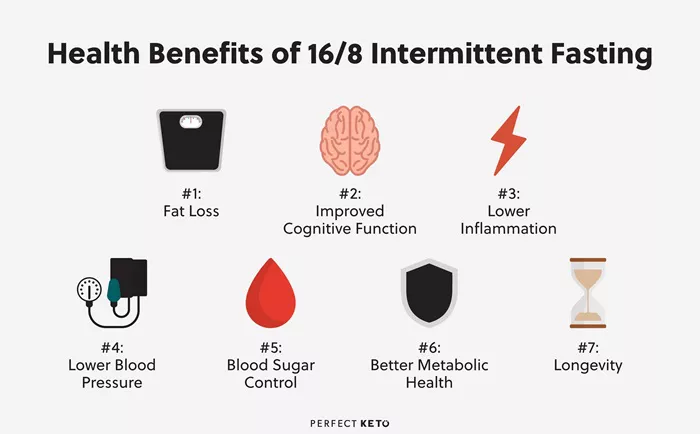Major depression is a complex and debilitating mental health disorder that affects millions of people worldwide. Understanding its causes is crucial for effective prevention, diagnosis, and treatment. This article delves into the various factors contributing to major depression from a professional perspective, including biological, psychological, and social aspects. By exploring these elements in detail, we can gain a more comprehensive understanding of the etiology of major depression and pave the way for more personalized and effective interventions.
Understanding Major Depression
Major depression, also known as clinical depression or major depressive disorder, is characterized by persistent feelings of sadness, hopelessness, loss of interest or pleasure in activities, changes in appetite and sleep patterns, low energy, difficulty concentrating, and thoughts of self-harm or suicide. It is a serious condition that can significantly impair an individual’s daily functioning, relationships, and overall quality of life. While the exact cause of major depression remains elusive, research has identified a multitude of factors that interact to increase the risk of developing this disorder.
Biological Causes
Genetic Factors
Family and twin studies have provided strong evidence for a genetic component in major depression. Research indicates that individuals with a first-degree relative (parent, sibling) with major depression are at a significantly higher risk of developing the disorder themselves. Estimates suggest that the heritability of major depression ranges from 30% to 40%. However, it is important to note that genetics alone do not determine the development of depression. Rather, genetic predispositions interact with environmental factors to increase or decrease the likelihood of the disorder manifesting. For example, certain genetic variants may affect the regulation of neurotransmitters such as serotonin, norepinephrine, and dopamine, which are involved in mood regulation. A person with a genetic vulnerability in neurotransmitter function may be more sensitive to the effects of stress or other environmental triggers, leading to an increased risk of developing major depression.
Neurotransmitter Imbalances
Neurotransmitters are chemical messengers in the brain that play a crucial role in regulating mood, emotions, and various physiological functions. Imbalances in neurotransmitters, particularly serotonin, norepinephrine, and dopamine, have been implicated in the pathophysiology of major depression. Serotonin is often referred to as the “feel-good” neurotransmitter as it is involved in regulating mood, appetite, and sleep. Low levels of serotonin have been associated with symptoms of depression, such as sadness, anxiety, and irritability. Norepinephrine is involved in the body’s stress response and arousal, and disruptions in its function can lead to feelings of fatigue, lack of motivation, and difficulty concentrating. Dopamine is associated with pleasure, reward, and motivation, and alterations in dopamine levels may contribute to anhedonia (loss of pleasure) and apathy, which are common symptoms of major depression. Antidepressant medications, such as selective serotonin reuptake inhibitors (SSRIs), work by increasing the availability of serotonin in the brain, thereby alleviating some of the symptoms of depression. However, the relationship between neurotransmitter imbalances and major depression is complex and not fully understood, and it is likely that other neurotransmitters and neuromodulators also play a role.
Hormonal Changes
Hormonal fluctuations can have a significant impact on mood and may contribute to the development of major depression, especially in certain populations. For example, in women, hormonal changes during the menstrual cycle, pregnancy, postpartum period, and menopause have been associated with an increased risk of depression. During the menstrual cycle, fluctuations in estrogen and progesterone levels can affect neurotransmitter function and mood. Premenstrual dysphoric disorder (PMDD) is a severe form of premenstrual syndrome that is characterized by significant mood symptoms, including depression, irritability, and anxiety. In pregnancy, hormonal changes, along with other factors such as physical and psychological stress, can increase the risk of antenatal and postpartum depression. The rapid drop in estrogen and progesterone levels after childbirth is thought to be a contributing factor to postpartum depression. In men, low testosterone levels have been linked to symptoms of depression, fatigue, and decreased libido. Additionally, thyroid hormones play a crucial role in regulating metabolism and mood, and thyroid disorders, such as hypothyroidism, can mimic or exacerbate symptoms of depression.
Brain Structure and Function Abnormalities
Advanced neuroimaging techniques, such as magnetic resonance imaging (MRI) and positron emission tomography (PET), have revealed structural and functional differences in the brains of individuals with major depression compared to healthy controls. Studies have shown that individuals with depression may have reduced volume in certain brain regions, such as the hippocampus, prefrontal cortex, and amygdala. The hippocampus is involved in learning, memory, and stress regulation, and its atrophy in depression may be related to the negative cognitive biases and memory impairments often seen in patients. The prefrontal cortex is responsible for executive functions, such as decision-making, planning, and emotional regulation, and dysfunction in this area may contribute to the difficulties in concentration, problem-solving, and emotional control experienced by those with depression. The amygdala, which is involved in processing emotions, especially fear and anxiety, may be hyperactive in depression, leading to increased emotional reactivity and negative emotional states. Additionally, alterations in neural circuitry and connectivity between these brain regions have been observed, suggesting that disruptions in the communication between different brain areas may underlie the pathophysiology of major depression.
Psychological Causes
Early Life Trauma and Adverse Childhood Experiences
Experiences of childhood trauma, such as physical, sexual, or emotional abuse, neglect, parental loss or separation, and exposure to domestic violence, have been consistently associated with an increased risk of developing major depression in adulthood. These early life stressors can have a profound and lasting impact on a child’s developing brain and psychological well-being. Trauma can disrupt the normal development of neural circuits involved in emotion regulation, stress response, and attachment, leading to increased vulnerability to mental health problems later in life. For example, children who have experienced abuse may have difficulties forming healthy relationships, regulating their emotions, and coping with stress, all of which are risk factors for depression. Moreover, the negative cognitions and self-beliefs that often develop as a result of early trauma, such as feelings of worthlessness, guilt, and helplessness, can contribute to the onset and maintenance of depressive symptoms.
Cognitive Patterns and Negative Thinking Styles
Cognitive theories of depression propose that individuals with a certain cognitive style or pattern of thinking are more prone to developing and maintaining depressive symptoms. People with depression often exhibit negative cognitive biases, such as selective attention to negative information, overgeneralization (drawing broad negative conclusions based on a single event), magnification (exaggerating the importance or consequences of negative events), and minimization (downplaying positive experiences or achievements). These cognitive distortions can lead to a negative view of oneself, the world, and the future, which is characteristic of the depressive cognitive triad. For example, a person may interpret a minor setback at work as evidence of their incompetence and believe that they will never succeed in their career, leading to feelings of hopelessness and worthlessness. Additionally, individuals with depression may engage in rumination, which is the repetitive and passive focus on negative thoughts and feelings. Rumination can maintain and exacerbate depressive symptoms by preventing the individual from engaging in more adaptive problem-solving and emotion regulation strategies.
Personality Traits
Certain personality traits have been identified as risk factors for major depression. Neuroticism, which is characterized by a tendency to experience negative emotions, such as anxiety, moodiness, and emotional instability, is strongly associated with an increased susceptibility to depression. People high in neuroticism are more likely to perceive and react to stressors in a negative way and may have difficulty coping with life’s challenges. Other personality traits, such as low self-esteem, perfectionism, and introversion, have also been linked to depression. Low self-esteem can lead to feelings of inadequacy and self-doubt, while perfectionism may result in excessive self-criticism and a sense of failure when one’s high standards are not met. Introverted individuals may have fewer social supports and may be more likely to internalize stress and negative emotions, increasing their risk of developing depression.
Social Causes
Stressful Life Events
Major life stressors, such as the loss of a loved one, relationship problems, financial difficulties, job loss, and chronic illness, can trigger episodes of major depression in vulnerable individuals. The stress associated with these events can disrupt normal physiological and psychological processes, leading to changes in mood, behavior, and cognitive function. For example, the death of a close family member is a significant stressor that can cause feelings of grief, sadness, and loneliness, which may progress to major depression if not properly processed and coped with. Relationship conflicts, such as divorce or separation, can also have a profound impact on an individual’s emotional well-being and self-esteem, increasing the risk of depression. Financial stress, such as debt, poverty, or sudden financial loss, can create feelings of insecurity and hopelessness, which are common in depression. Additionally, chronic stressors, such as ongoing work-related stress or caregiving for a chronically ill family member, can wear down an individual’s psychological and physical resources over time, making them more susceptible to depression.
Social Isolation and Lack of Social Support
Human beings are social animals, and a lack of meaningful social connections and support can have a detrimental effect on mental health. Social isolation, whether due to living alone, having few friends or family members, or experiencing difficulties in forming and maintaining relationships, has been associated with an increased risk of major depression. Social support, on the other hand, can act as a buffer against stress and protect against the development of mental health problems. Supportive relationships provide emotional comfort, practical assistance, and a sense of belonging and purpose, which can help individuals cope with life’s difficulties and maintain a positive outlook. For example, having a close friend or family member to talk to during a difficult time can reduce feelings of loneliness and hopelessness and promote resilience. In contrast, individuals who lack social support may feel isolated and overwhelmed by stress, increasing their vulnerability to depression.
Socioeconomic Status and Cultural Factors
Socioeconomic factors, such as low income, education level, and employment status, can also influence the risk of major depression. People living in poverty or with limited access to resources may face greater stressors related to housing, food security, and healthcare, which can contribute to the development of depression. Additionally, discrimination and social inequality based on factors such as race, ethnicity, gender, and sexual orientation can have a negative impact on mental health. Cultural factors also play a role in the expression and understanding of depression. Different cultures may have different beliefs and attitudes about mental illness, which can affect help-seeking behaviors and the stigma associated with depression. For example, in some cultures, mental illness may be seen as a sign of weakness or a moral failing, which can prevent individuals from seeking appropriate treatment. Cultural norms and values may also influence the way in which depressive symptoms are manifested and experienced.
Interaction of Biological, Psychological, and Social Factors
It is important to note that the causes of major depression are not mutually exclusive but rather interact in complex ways. For example, a person with a genetic predisposition to depression may be more sensitive to the effects of stress, and a major life stressor may trigger the onset of depressive symptoms in such an individual. Similarly, early life trauma can affect brain development and neurotransmitter function, which in turn can interact with negative cognitive patterns and social stressors to increase the risk of depression. Moreover, the presence of depression can also have a negative impact on an individual’s social relationships and functioning, further exacerbating the disorder. Understanding these complex interactions is essential for developing comprehensive and personalized treatment approaches that address not only the symptoms of depression but also the underlying causes and risk factors.
Conclusion
Major depression is a complex mental health disorder with multiple causes that involve biological, psychological, and social factors. Genetic predispositions, neurotransmitter imbalances, hormonal changes, and brain structure and function abnormalities contribute to the biological vulnerability to depression. Early life trauma, negative cognitive patterns, and certain personality traits are important psychological risk factors. Stressful life events, social isolation, and socioeconomic and cultural factors play a significant role in the social context of depression. These factors interact in a complex web, and a comprehensive understanding of their interplay is crucial for effective prevention, early detection, and treatment of major depression. By addressing these multiple factors, mental health professionals can develop more personalized and holistic treatment plans that target not only the symptoms of depression but also the underlying causes, thereby improving the prognosis and quality of life for individuals with this debilitating disorder. Future research is needed to further elucidate the specific mechanisms underlying these interactions and to develop more effective interventions that can break the cycle of depression and promote mental health and well-being.
Related topics:
Major Depression: 8 Complex Causes & Treatments



































